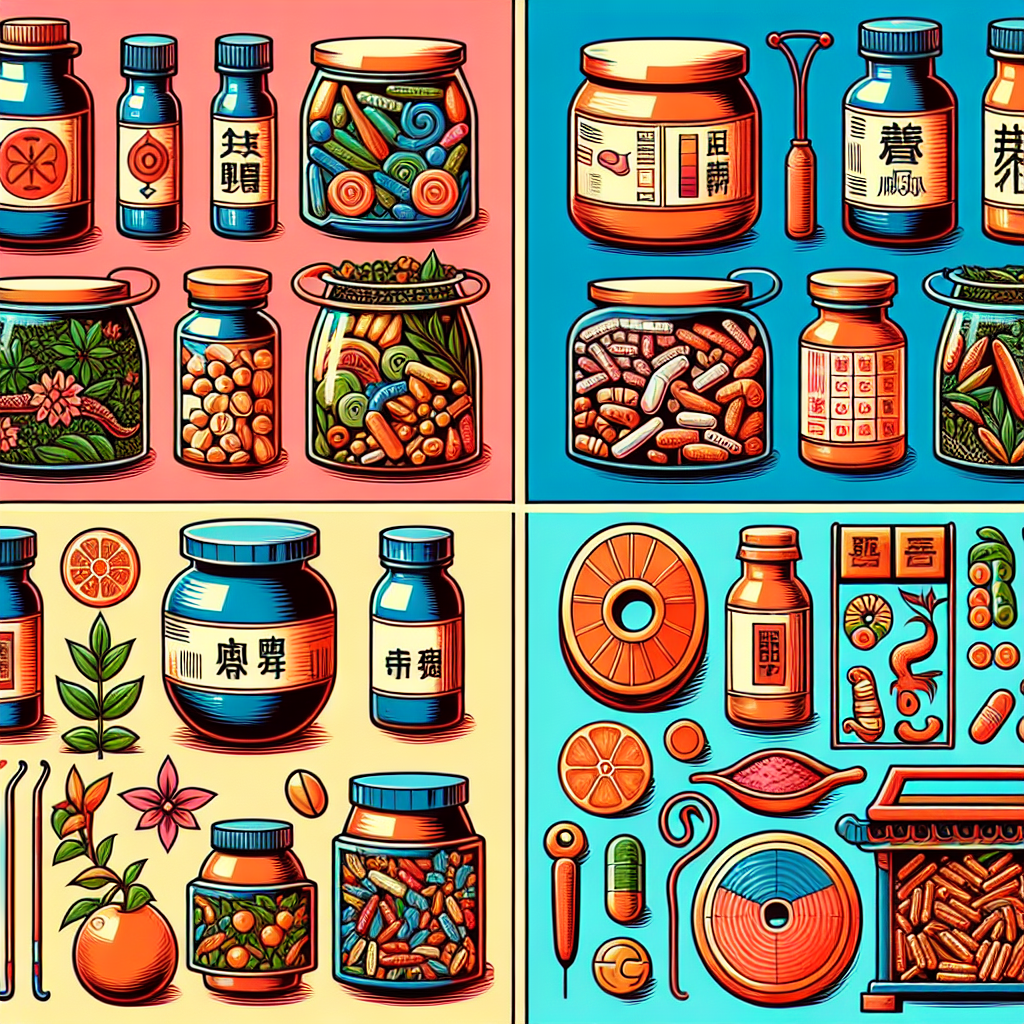Vitamins in Ayurvedic and Traditional Chinese Medicine

Discover the power of vitamins in Ayurvedic and Traditional Chinese Medicine. Unleash your body’s potential with natural healing. Visit My Vibrant Vitality now to learn more and start your journey towards a healthier life.
Exploring the Role of Vitamins in Ayurvedic Medicine
Vitamins, the essential nutrients required for the proper functioning of our body, have been a significant part of Ayurvedic and Traditional Chinese Medicine for centuries. These ancient medicinal systems have always emphasized the importance of a balanced diet, rich in vitamins, for maintaining good health and preventing diseases.
Ayurveda, a 5000-year-old holistic healing system from India, is based on the belief that health and wellness depend on a delicate balance between the mind, body, and spirit. It advocates the consumption of a variety of foods to ensure the intake of all essential vitamins. Ayurveda classifies foods into three categories, or ‘gunas’ – sattva (pure), rajas (active), and tamas (inert). Sattvic foods, which are fresh, organic, and naturally rich in vitamins, are considered the most beneficial for health.
In Ayurvedic medicine, vitamins are not isolated nutrients but are seen as integral components of whole foods. For instance, Ayurveda recommends consuming vitamin C through foods like amla (Indian gooseberry), which is believed to have a cooling effect on the body and help balance the ‘pitta’ dosha. Similarly, vitamin A is obtained from foods like carrots and spinach, which are considered beneficial for the ‘vata’ dosha.
Ayurveda also emphasizes the importance of the method of food preparation in preserving its vitamin content. It encourages cooking methods that retain the maximum nutritional value of food, such as steaming and sautéing. Moreover, Ayurveda suggests that the time of eating and the combination of foods can also affect the absorption of vitamins.
Transitioning to Traditional Chinese Medicine (TCM), it shares many similarities with Ayurveda in its approach to vitamins. TCM, like Ayurveda, views food and medicine as interconnected and believes in obtaining vitamins from a balanced diet rather than supplements.
In TCM, foods are categorized into five flavors – sweet, sour, bitter, pungent, and salty. Each flavor is associated with a specific organ system and has a unique effect on the body. For example, sweet foods like grains and root vegetables, which are high in B vitamins, are believed to strengthen the spleen and stomach. On the other hand, sour foods like lemons and vinegar, rich in vitamin C, are thought to nourish the liver.
TCM also emphasizes the importance of cooking methods in preserving the nutritional value of food. It recommends gentle cooking methods like steaming and boiling, which are believed to make the vitamins more bioavailable. Furthermore, TCM suggests that the season and time of day can influence the body’s ability to absorb vitamins.
In conclusion, both Ayurvedic and Traditional Chinese Medicine place a high value on vitamins as part of a balanced diet. They advocate obtaining vitamins from whole foods rather than supplements and emphasize the importance of cooking methods, food combinations, and timing in preserving the nutritional value of food and enhancing vitamin absorption. These ancient medicinal systems offer valuable insights into the role of vitamins in promoting health and preventing diseases.
Understanding the Importance of Vitamins in Traditional Chinese Medicine

Vitamins are essential nutrients that our bodies need in small amounts to function properly. They play a crucial role in maintaining our overall health and wellbeing. While modern medicine has made significant strides in understanding the importance of vitamins, traditional systems of medicine, such as Ayurveda and Traditional Chinese Medicine (TCM), have long recognized their significance.
Traditional Chinese Medicine, a holistic healing system that has been practiced for over 2,000 years, places a strong emphasis on the importance of vitamins. TCM practitioners believe that a balanced diet is the cornerstone of good health and that vitamins are an integral part of this balance. They view vitamins not just as individual nutrients, but as part of a complex network of elements that work together to maintain the body’s harmony and balance.
In TCM, vitamins are considered to be vital substances that nourish the body and support its functions. They are believed to contribute to the body’s Qi, or vital energy, and to help maintain the balance between Yin and Yang, the two opposing forces that govern the body’s functions. For instance, Vitamin C, known for its immune-boosting properties, is considered to be a Yang vitamin because it stimulates the body’s functions and promotes energy production. On the other hand, Vitamin D, which is essential for bone health and immune function, is seen as a Yin vitamin because it nourishes the body and supports its structures.
Moreover, TCM practitioners often recommend foods rich in specific vitamins to treat certain health conditions. For example, foods high in Vitamin A, which is essential for eye health and immune function, might be recommended for someone with vision problems or a weak immune system. Similarly, foods rich in Vitamin B, which supports the nervous system and helps the body convert food into energy, might be suggested for someone experiencing fatigue or stress.
In addition to their role in maintaining physical health, vitamins are also believed to have a profound impact on mental and emotional wellbeing in TCM. For instance, Vitamin B12 is considered to nourish the heart and calm the spirit, making it beneficial for people suffering from anxiety or depression. Similarly, Vitamin E, known for its antioxidant properties, is believed to support the liver and soothe the emotions, making it beneficial for people dealing with anger or frustration.
While the concept of vitamins as we understand it today did not exist in ancient times, the principles of TCM reflect a deep understanding of the importance of these nutrients. The TCM approach to vitamins is holistic, viewing them not just as individual nutrients, but as part of a complex network of elements that work together to maintain the body’s harmony and balance.
In conclusion, the importance of vitamins in Traditional Chinese Medicine cannot be overstated. They are seen as vital substances that nourish the body, support its functions, and contribute to its vital energy. By understanding the role of vitamins in TCM, we can gain a deeper appreciation of this ancient healing system and its holistic approach to health and wellbeing.
Comparative Study: Vitamins in Ayurvedic vs Traditional Chinese Medicine
Vitamins are essential nutrients that our bodies need in small amounts to function properly. They play a crucial role in maintaining our overall health and wellbeing. Interestingly, the concept of vitamins is not new. It has been a part of traditional medicinal systems like Ayurveda and Traditional Chinese Medicine (TCM) for centuries. However, the understanding and application of vitamins in these two systems are quite different.
Ayurveda, a 5000-year-old system of medicine originating from India, does not explicitly mention vitamins. Instead, it emphasizes the importance of a balanced diet, which naturally includes all essential vitamins. Ayurveda categorizes food into six tastes – sweet, sour, salty, bitter, pungent, and astringent. Each taste corresponds to specific health benefits and nutritional components, including vitamins. For instance, sweet foods like fruits and grains are rich in vitamins B and C, while bitter foods like leafy greens are high in vitamins A, C, and K. Ayurveda believes that a diet incorporating all six tastes ensures a balanced intake of all essential nutrients, including vitamins.
On the other hand, Traditional Chinese Medicine, a system with over 2000 years of history, also does not directly refer to vitamins. However, it recognizes the importance of certain foods for their healing properties, many of which are rich in vitamins. TCM classifies food into five flavors – sweet, sour, bitter, pungent, and salty, each associated with a specific organ system in the body. For example, sour foods like lemons, rich in vitamin C, are associated with the liver and gallbladder. TCM believes that a balanced diet incorporating all five flavors ensures optimal health and wellbeing.
Despite the differences in their approach, both Ayurveda and TCM agree on the importance of a balanced diet for maintaining health and preventing disease. They both recognize that certain foods, rich in vitamins, have healing properties. However, the emphasis in Ayurveda is more on the overall balance of tastes in the diet, while TCM focuses more on the relationship between specific foods and organ systems.
Moreover, both Ayurveda and TCM use herbs and spices, many of which are rich in vitamins, in their treatments. For example, turmeric, a common ingredient in Ayurvedic medicine, is rich in vitamins B6 and C. Similarly, goji berries, used in TCM, are packed with vitamins A and C. These traditional medicines utilize the natural vitamin content of these ingredients to promote healing and wellbeing.
In conclusion, while the concept of vitamins as we understand it today was not explicitly present in Ayurveda and TCM, the importance of a balanced diet rich in vitamins was well recognized. Both systems use food and herbs rich in vitamins for their healing properties. However, the approach and emphasis differ, with Ayurveda focusing on the balance of tastes and TCM on the relationship between foods and organ systems. This comparative study of vitamins in Ayurvedic and Traditional Chinese Medicine provides a fascinating insight into the wisdom of these ancient medicinal systems and their relevance in today’s world.